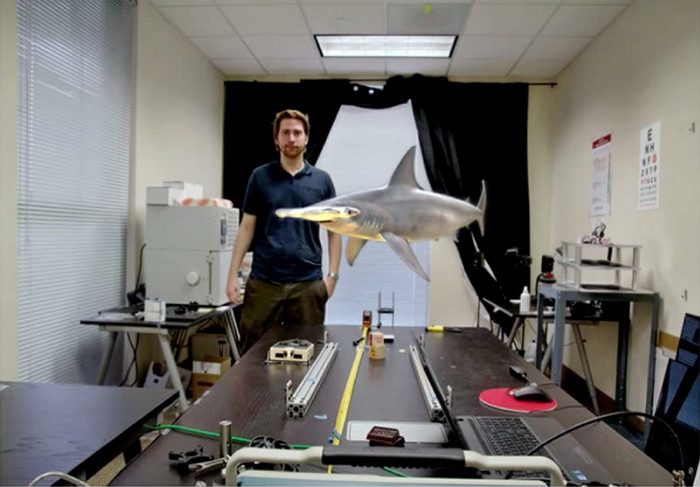Earlier this week, Recode reported that Google is “set to lead a huge investment in Magic Leap.” The article cites “sources” which say that Google could be leading a $500 million funding round for the company, possibly including capital from Andreessen Horowitz which previously invested in Oculus. Magic Leap has been in stealth mode since its inception and no one seems to have a concrete idea about what their “Cinematic Reality” tech is. We went digging to see what we could uncover.
At a most basic level, Magic Leap appears to be working on a wearable imaging technology which the company seems to think is groundbreaking. The few bits of information on the company’s website contain trademarked phrases like “It’s time to bring magic back into the world,” and “The human brain is still the best display ever made.” Magic Leap’s CEO, Rony Abovitz, says “we believe [our technology] will be the most natural and human-friendly wearable computing interface in the world.”
In an interview with the South Florida Business Journal in February, Abovitz said “When you see this, you will see that this is computing for the next 30 or 40 years. To go farther and deeper than we’re going, you would be changing what it means to be human.”
With little to no readily available info to go on, Magic Leap sounds like snake oil. But there are several compelling reasons to chase this wild goose:
$50m in Seed and Series A
The company has already secured some $50 million in Seed and Series A investments, the latter having closed in February of this year. It doesn’t look like the details of the deal were made public, but a press release announcing the deal quotes Richard Taylor, co-founder of Weta Workshop, and announces him as being on Magic Leap’s Board of Directors, indicating that he and/or Weta were likely involved in the investment—which is odd, because Weta is a special effects and prop company… based in New Zealand.
A Founder with a Track Record of Success

Magic Leap’s founder and CEO, Rony Abovitz is far from a first-time college dropout entrepreneur. According to LinkedIn, Abovitz received his Masters degree in biomedical engineering. He also co-founded Mako Surgical, which was sold to Stryker for $1.65 billion in September, 2013. Abovitz is also well vetted on LinkedIn.
Impressive Employee Pedigree
Magic Leap also has an impressive repertoire of employees for a company that’s been in stealth since its inception. LinkedIn lists 109 people affiliated with the company, including Ann-Marie Harbour, a producer who’s worked on projects for Nike, EA, Old Spike, and Skype and is now Executive Producer at Magic Leap; Henk Vlietstra, an experienced businessman who’s worked with TNT, DHL, and others, now holding the title of “Executive Officer” at Magic Leap; and Graeme Devine who’s worked as VP of R&D at Virgin Games, a Game Designer at iD Software, Lead Game Designer at Ensemble Studios and Microsoft, and has also worked in a gaming capacity at Apple.
Ok, so there’s reason to pay attention (as long as we ignore this)…






